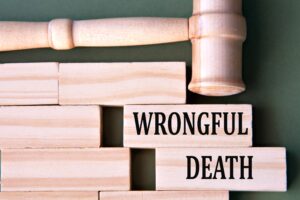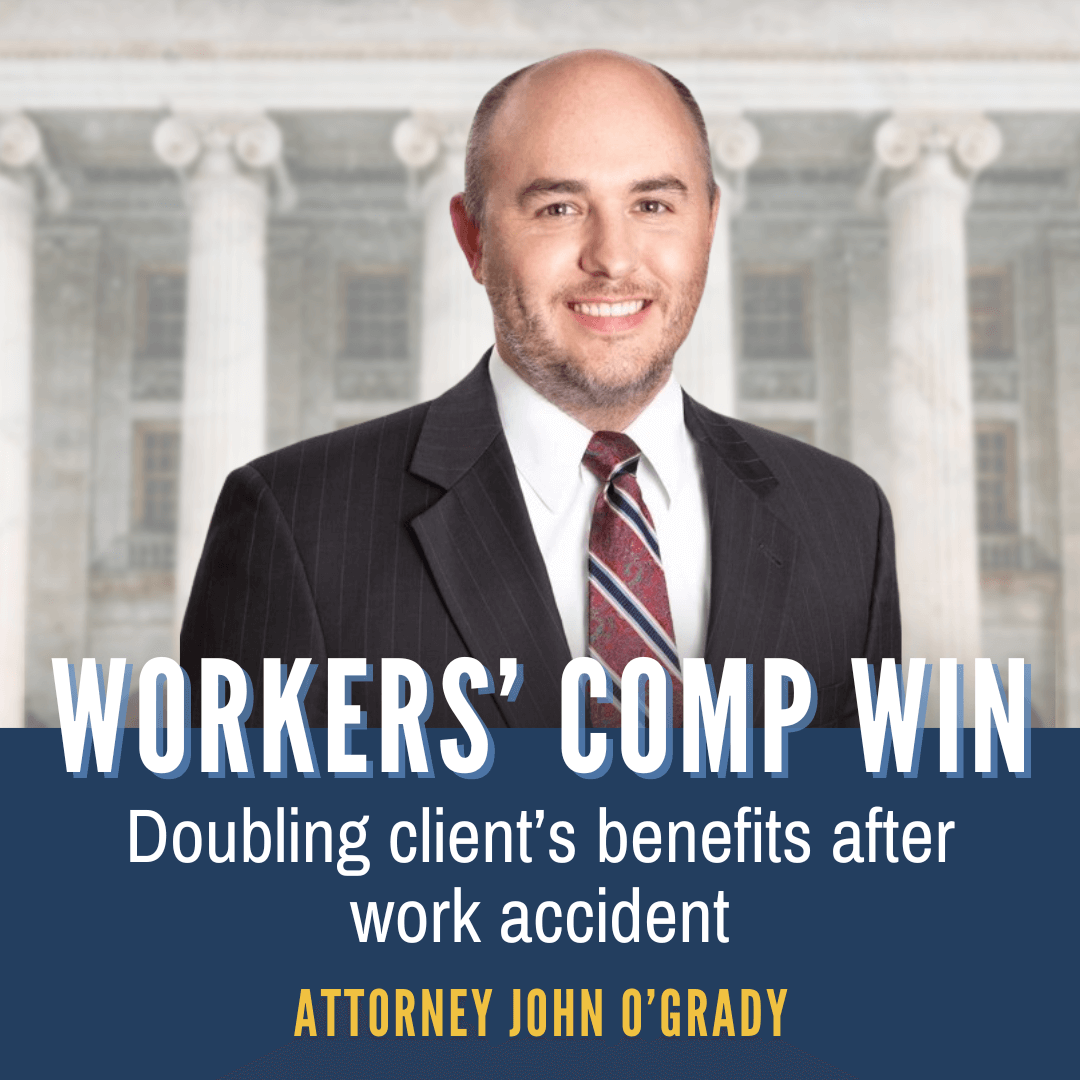Losing a loved one in a car accident is a devastating experience that no one should have to endure. The emotional trauma and financial burden that follow such a tragedy can be overwhelming.
Losing a loved one in a car accident is a devastating experience that no one should have to endure. The emotional trauma and financial burden that follow such a tragedy can be overwhelming.
In these difficult times, a lawyer can explain your legal rights and options, particularly when it comes to filing a wrongful death claim.
Read on to learn of the process of filing a wrongful death claim in Colorado after a car accident and the importance of seeking legal guidance during this challenging period.
For specific advice and guidance regarding your case, contact a Colorado wrongful death attorney right away for a free consultation.
What Is a Wrongful Death Claim?
A wrongful death claim is a civil lawsuit certain surviving family members can bring against a party who caused their loved one’s death due to their negligence, recklessness, or intentional actions.
After a fatal car accident, eligible family members can file a wrongful death claim if a negligent driver caused a wreck that killed their loved one. Possible grounds for negligence include driving under the influence, speeding, disobeying traffic laws, or distracted driving.
A wrongful death claim is distinct from other personal injury claims. In those personal injury claims, the injured person files a claim, seeking compensation for their own damages.
By contrast, the deceased individual’s family members or a representative of their estate can file a wrongful death to seek compensation for the losses they have suffered as a result of their loved one’s death.
Eligibility for Filing a Wrongful Death Claim in Colorado
Colorado law outlines the eligibility to file a wrongful death claim as follows:
If the Deceased Had a Spouse, Children, or Designated Beneficiary
During the First Year After Death
Only the surviving spouse is permitted to file a wrongful death claim in the first year following the death. However, there are exceptions:
- The surviving spouse can authorize in writing for the deceased’s children to file the claim or can join them in doing so.
- If the deceased was not married, the deceased’s children, parents, or a designated beneficiary may file a wrongful death action.
During the Second Year After Death
In the second year, the following individuals may file a wrongful death claim:
- The surviving spouse
- The deceased’s children
- Both the spouse and children together
- The designated beneficiary along with the children
If a surviving spouse filed a lawsuit in the first year after the individual’s death, the decedent’s children may join that lawsuit during that second year. If the children file a lawsuit first, the surviving spouse or designated beneficiary must join within 90 days if they wish to do so.
New Legislation Concerning Eligibility to Bring Wrongful Death Actions in Colorado
Colorado recently passed legislation that becomes effective January 1, 2025. If the decedent had no surviving spouse, heir, or designated beneficiary to bring a claim, the decedent’s siblings or the heirs of those siblings may bring a wrongful death action.
Elements of a Wrongful Death Claim
To successfully pursue a wrongful death claim, you need an attorney to establish four essential elements:
- Duty of care: The defendant (the party alleged to be at fault) owed a duty of care to the deceased. In the case of a car accident, all drivers have a duty to operate their vehicles safely and follow traffic laws.
- Breach of duty: The defendant breached their duty of care by engaging in negligent or reckless behavior, such as running a red light or driving while intoxicated.
- Causation: The defendant’s breach of duty directly caused the deceased’s death.
- Damages: The deceased’s death resulted in quantifiable damages, such as medical expenses, funeral costs, lost income, and emotional distress.
Proving Negligence in a Car Accident Wrongful Death Claim
To prove negligence in a car accident wrongful death claim, your attorney needs to gather:
 Police reports: The official accident report filed by law enforcement can provide valuable information about the circumstances surrounding the accident, including the parties involved, witness statements, and any citations issued.
Police reports: The official accident report filed by law enforcement can provide valuable information about the circumstances surrounding the accident, including the parties involved, witness statements, and any citations issued.- Witness statements: Eyewitness accounts can help establish fault and provide a clearer picture of how the accident occurred.
- Expert testimony: In some cases, a lawyer may call upon accident reconstruction experts or medical professionals to provide testimony regarding the cause of the accident or the nature and extent of the deceased’s injuries.
- Physical evidence: Photographs of the accident scene, vehicle damage, and any other relevant physical evidence can help support your claim.
Damages in a Wrongful Death Claim
In a wrongful death claim, various types of damages may compensate the deceased’s surviving family members:
- Economic damages: These include quantifiable financial losses, such as medical expenses related to the deceased’s final injury, funeral and burial costs, and lost income and benefits the deceased would have earned had they lived.
- Non-economic damages: These damages are more subjective and include compensation for the emotional distress, loss of companionship, and loss of guidance and support suffered by the surviving family members.
- Punitive damages: In rare cases involving particularly egregious or intentional conduct, punitive damages may punish the defendant and deter similar behavior.
Statute of Limitations for Filing a Wrongful Death Claim
The statute of limitations is the legal time limit within which a wrongful death claim must be filed. In Colorado, the statute of limitations for wrongful death claims is generally two years from the date of the deceased’s death.
However, there are some exceptions to this rule, such as cases involving minors. You must consult an experienced wrongful death attorney as soon as possible to ensure they file your claim within the appropriate timeframe.
The Importance of Hiring a Wrongful Death Attorney
You cannot successfully navigate the complex and emotionally challenging legal process of filing a wrongful death, especially while grieving over the loss of a loved one.
 Hiring an experienced wrongful death attorney can provide numerous benefits, including:
Hiring an experienced wrongful death attorney can provide numerous benefits, including:
- Knowledge of the legal system: An attorney who handles wrongful death cases will understand the relevant laws, procedures, and strategies needed to build a strong case on your behalf.
- Investigative resources: A skilled attorney can access a network of experts and resources to thoroughly investigate the accident, gather evidence, and establish liability.
- Negotiation skills: Your attorney will handle communication with insurance companies and negotiate on your behalf to ensure you receive fair compensation for your losses.
- Emotional support: A compassionate wrongful death attorney will understand the emotional toll of your loss and provide guidance and support throughout the legal process, allowing you to focus on healing and moving forward.
Contact a Wrongful Death Lawyer Near You Today
Losing a loved one in a car accident is an unimaginable tragedy, and the idea of pursuing legal action during this time may feel overwhelming.
However, filing a wrongful death claim can provide a sense of justice and help alleviate the financial burden your loss has caused.
By understanding the legal process and seeking the guidance of an experienced wrongful death attorney, you can navigate this difficult time with support and confidence.
If you lost a loved one in a car accident due to another party’s negligence, in Colorado it is crucial to act quickly to protect your legal rights. The attorneys at Franklin D. Azar & Associates, P.C., are here for you and your family during this challenging time. We can review your case at no cost and inform you of your rights and options.
Contact us today for your free consultation to learn how we can help you. We handle wrongful death claims on a contingency fee basis, so you won’t pay anything upfront and no attorney fees unless we recover damages for you.




